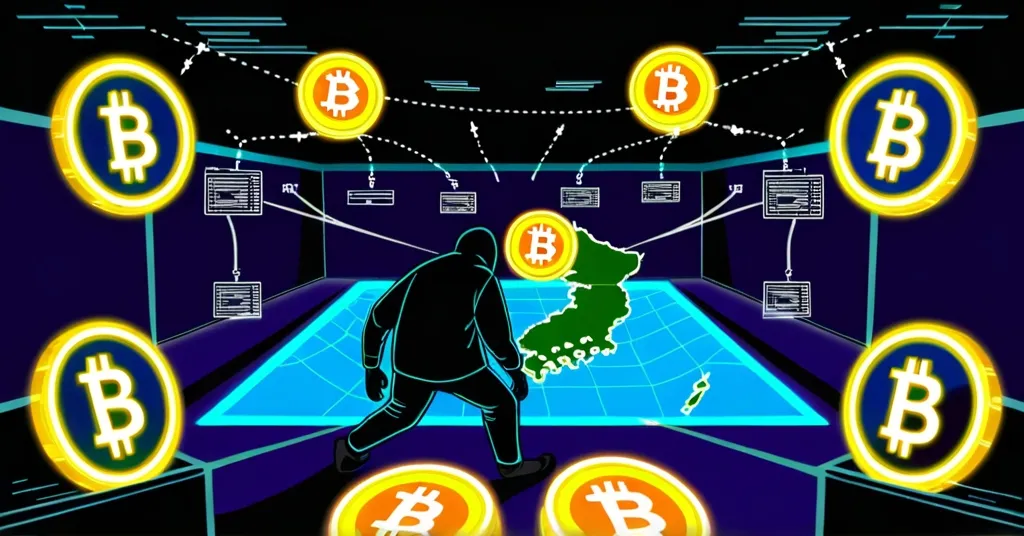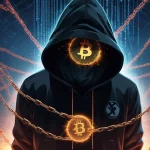South Korea Sanctions 15 North Korean Hackers Amid $1.34 Billion Crypto Heist

South Korea Strikes Back: Sanctioning North Korean Hackers Amid Rising Crypto Thefts
In a cyber heist of epic proportions, North Korean hackers managed to siphon $1.34 billion from the world of cryptocurrencies in 2024. These stolen funds are suspected of bolstering North Korea’s notorious weapons programs, highlighting a new level of sophistication and audacity in North Korean cyber operations.
- Fifteen North Korean hackers sanctioned by South Korea for massive crypto thefts.
- The infamous Ronin network hack is linked to these cybercriminals.
- Stolen funds are allegedly funneling into North Korea’s nuclear development projects.
- Crypto thefts surged 40% from 2023 to 2024, raising alarms across the globe.
South Korea’s Ministry of Foreign Affairs has taken decisive action by imposing sanctions on these cybercriminals, part of an international crackdown on North Korea’s illicit funding channels. Chainalysis data shows that North Korean hackers were responsible for over half of the cryptocurrency thefts recorded in 2024, with the notorious Lazarus Group playing a prominent role. The Ronin network hack, which alone saw $625 million vanish, underscores the scale of these operations.
“Notably, attacks between $50 and $100 million, and those above $100 million occurred far more frequently in 2024 than they did in 2023, suggesting that the DPRK is getting better and faster at massive exploits.”
The surge in cyberattacks not only poses a financial threat but also a geopolitical one, as these thefts potentially finance weapons of mass destruction. Individuals like Kim Cheol-min and Kim Ryu Song are accused of channeling laundered funds into North Korea’s nuclear program, amplifying concerns about the consequences of these cybercrimes.
The Threat of North Korean Cybercrime
North Korean cyber activities are part of a broader strategy to circumvent international sanctions by acquiring foreign currency through illicit means. This geopolitical maneuvering is a stark reminder of the intersection between cybersecurity and global security.
South Korea’s Strategic Response
The sanctions by South Korea aim to disrupt these illicit operations by targeting individuals directly involved in the thefts. However, the effectiveness of sanctions remains in question, as hackers often employ sophisticated laundering techniques, such as using mixing services and decentralized exchanges, making asset recovery a daunting task.
The Road Ahead for the Crypto World
The rise in North Korean cyber threats calls for enhanced global cooperation and improved cybersecurity measures within the crypto industry. As hackers shift their focus from decentralized to more centralized targets, the industry must adapt quickly to protect digital assets.
Key Questions and Takeaways
- What actions did South Korea take against North Korean hackers?
South Korea imposed sanctions on 15 North Korean hackers accused of significant crypto thefts.
- How much cryptocurrency was reportedly stolen by North Korean hackers in 2024?
North Korean hackers reportedly stole $1.34 billion in cryptocurrency.
- Who are the main suspects behind the Ronin network hack?
The hack is primarily attributed to North Korean hackers, including the Lazarus Group.
- What is the significance of the sanctions imposed by South Korea?
The sanctions target individuals involved in crypto thefts linked to North Korea’s nuclear program and highlight international efforts to deter such activities.
- What trends were noted in North Korean cyberattacks between 2023 and 2024?
A significant increase in both the number and scale of attacks was observed, with more frequent large-scale thefts.
The escalation of cyber threats from North Korea reveals a critical need for robust international cooperation and improved cybersecurity frameworks to safeguard the burgeoning cryptocurrency sector. The stakes are high, not only financially but also in maintaining global security and stability.



